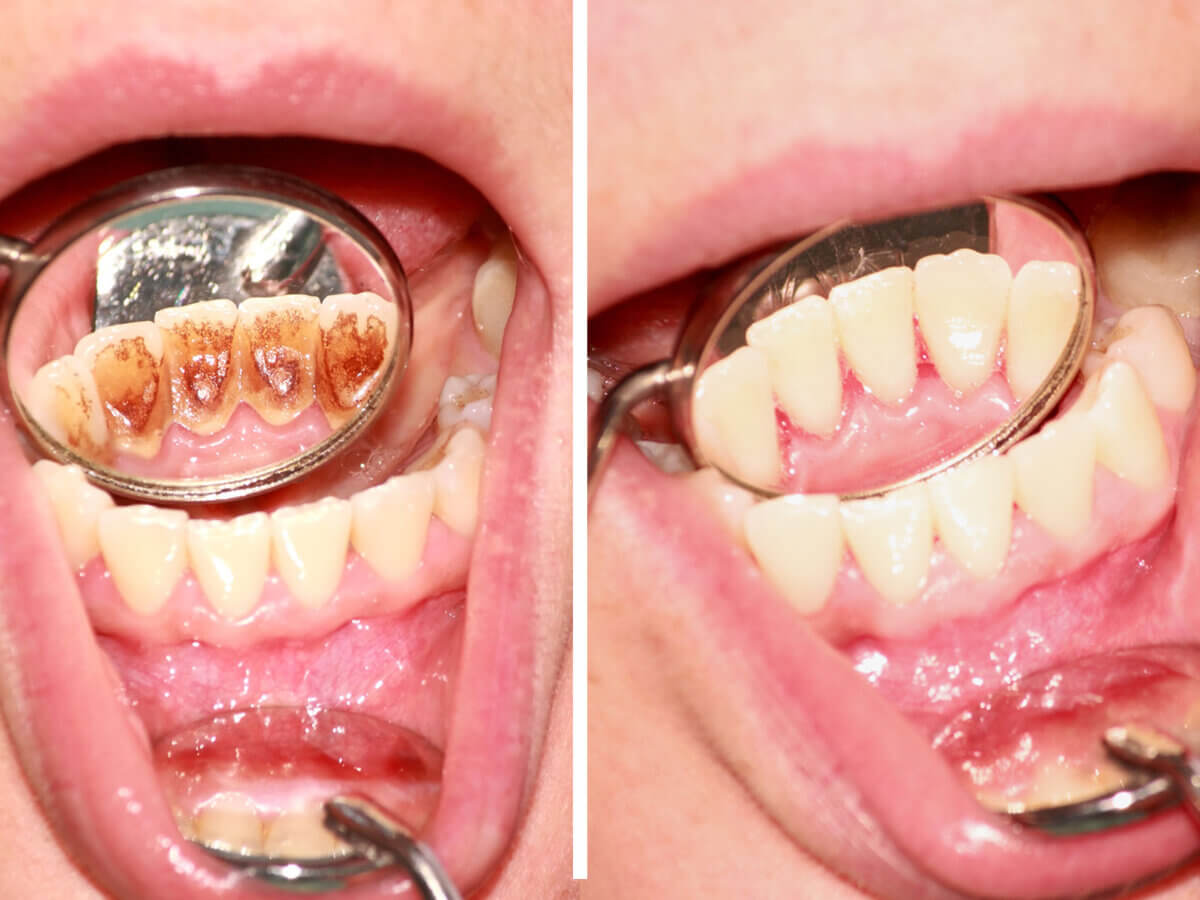Blog
Dental hygiene tips for healthy teeth & gums

Advantages And Disadvantages of Deep Cleaning Teeth
Advantages And Disadvantages of Deep Cleaning Teeth
Maintaining excellent dental hygiene is essential for all of us as it can fight gum disease and keep bad breath away. Apart from regularly brushing and flossing your pearly whites, seeing your dentist for professional cleaning is also vital in your oral regime. Your dentist might sometimes suggest deep teeth cleaning based on some signs, such as if you have bleeding gums, loose dentitions, or your gums are receding.
Deep teeth cleaning (also referred to as periodontal scaling) is a standard procedure, but it comes with some risks. Before you decide to get this treatment done, it is crucial to understand this method’s possible complications and side effects. This article highlights some of the advantages and disadvantages of periodontal scaling.
Details Of Deep Teeth Cleaning
If you have plaque or tartar (hardened plaque) buildup on your teeth, you would need deep teeth cleaning to get rid of them.
Plaque is a thin, sticky film of bacteria that accumulates on our teeth daily when we eat food. Plaque gets deposited whenever food particles mix with saliva in our mouths.
If you brush daily, you can get rid of this plaque. But at times, brushing can not remove all the plaque, which calcifies and hardens into tartar which can not be removed by brushing at home.
The accumulated plaque or tartar can lead to many gum diseases, such as gingivitis or more severe periodontitis, where you can even lose your pearly whites.
Periodontal scaling can reduce inflammation in gums and enhance gum health.
Deep teeth cleaning also protects the roots of our dentition and prevents tooth loss.
Steps In Deep Teeth Cleaning
Periodontal scaling involves many steps, as described below:
Cleaning – In this step, your doctor removes plaque and tartar from hard-to-reach areas of your oral region. S/he might use hand-held instruments (curettes or scalers) and ultrasound devices for this procedure.
Polishing – Once your pearly whites are cleaned, your doctor will polish them. For this step, the dentist would use a hand-held instrument with a rotating head and put a special paste to polish your dentitions.
Protect and strengthen – Finally, the doctor would put a varnish or fluoride gel on your pearly whites to protect and strengthen them.
Benefits of Periodontal Scaling
If your gums are pulling away from your dentitions, you might need deep teeth cleaning to prevent this. If you do not treat this, it would widen the space between your pearly whites and gum and weaken the bone that supports your dentitions. If you go for deep cleaning, here are some of the major advantages gained from it:
Gum diseases will not advance – With root planing and scaling, gum diseases such as, gingivitis do not spread. Periodontal scaling uses special techniques to eradicate excess bacteria and plaque from the tooth roots. This results in preventing the advancement of gum disease along with reduced risk of future gum diseases.
Eradicated plaque buildup and tartar – The periodontal scaling procedure deeply cleanses teeth and gums. It helps get rid of tartar from the gum line, which reduces the space between the gums and your dentitions. It leads to the gums reattaching to the patient’s teeth within five to seven days.
Promotes gum healing – Deep teeth cleaning can get rid of tartar and plaque below the gum line, which reduces gum inflammation resulting in healthier gums.
Protects tooth roots – When periodontal scaling removes the plaque and tartar below the gumline, it strengthens the roots and prevents them from loosening.
Prevents tooth loss – With deep teeth cleaning, your doctor is able to stop the progression of periodontal diseases, and the chances of teeth loss are minimized.
Cons of Deep Teeth Cleaning
Periodontal scaling has some risks outlined below:
Can cause damage to nerves – In some rare cases, there could be damage to the nerves inside teeth. Damaged nerves stop the to and fro of signals from the brain. Nerve damage is seen mostly in people with autoimmune diseases, vasculitis, Sjogren’s syndrome, lupus, etc. hence it is important for you to discuss your general health condition with the dentist.
Tooth sensitivity might increase – In root planing and scaling, it is normal to experience mild throbbing and aching in the mouth. There could also be slight swelling in the gums, which usually settles down within three to five days. But if the discomfort and pain persist even after a week, you should speak to your dentist.
Gum recession – Some amount of gum bleeding is natural after the treatment, which could continue for about two to three days. During this time, you need to brush gently and be careful while you do it.
Infection – If your immune system is compromised, you might be at risk of infection after deep teeth cleaning.
Summing Up
Periodontal scaling has many advantages, as discussed here, and is overall a safe method. Discuss with your dentist about your health condition and the possible disadvantages before you opt for this procedure.


